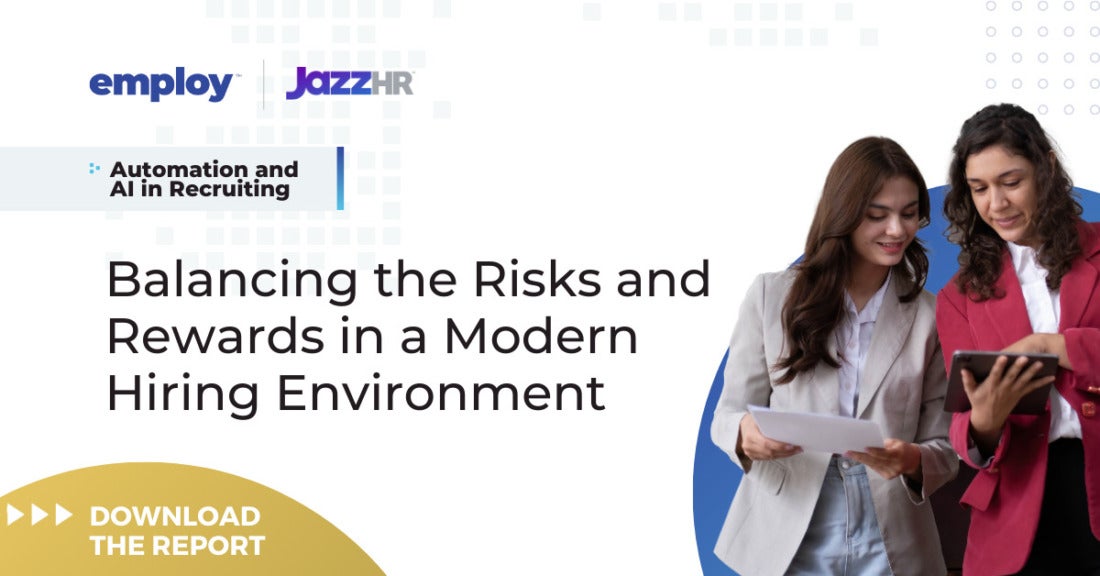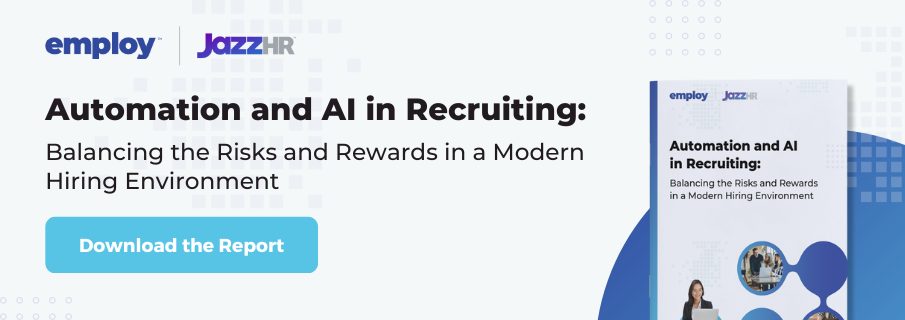The current labor market has a high number of job openings and a shortage of skilled talent.
The number of openings reported in July by the BLS is hovering between 9 and 10 million jobs as of May 2023, with open roles outnumbering job seekers around 1.6 to 1. Recruiters and hiring managers are the first to point out how challenging it is to fill open requisitions.
Of these individuals, 58% say it’s because they cannot find enough qualified candidates, and 1 in 2 indicate they have more open roles to fill despite the talent shortage.
A tight labor market demands a new approach
While there are plenty of opportunities available for job seekers, the imbalance in supply and demand makes it difficult for employers to find the right candidates for their open roles.
First, there are significantly more jobs available than workers. According to data from the U.S. Bureau of Labor Statistics, 3.5 million fewer people are in the workforce now than in February 2020.
The United States Department of Labor predicts this imbalance to last at least into the 2030s and likely longer, indicating the labor supply and demand imbalance is not a short-term phenomenon.
The second factor is the mismatch in skills demanded by employers and those possessed by the workforce. While this imbalance has been misaligned since before the pandemic, post-pandemic, the situation is expected to accelerate.
According to the World Bank, over the next decade, the number of people of working age (between ages 15 and 65) will decline in the U.S. by more than three percent.
Opportunities for recruitment automation and AI
The need for innovative strategies, technology investment, and a data-driven approach in recruitment technology has never been more urgent.
With the current situation, it should come as no surprise that 47% of companies plan to increase spending on sourcing, including automated sourcing technology, according to Employ data.
Here are the top 9 ways recruitment automation and AI can help ease the burden on recruiters right now:
#1. Sourcing: Boost the recruiting capacity of your team with intelligent sourcing built to find high-quality candidates who match your open requisitions in just a single click.
#2. Job Advertising: Automated, programmatic advertising can optimize and personalize job ads or recruitment advertising campaigns. It can also maximize the reach of recruitment ads while minimizing costs.
#3. Resume Screening: Automate resume screening and shortlisting processes by scanning resumes for specified keywords and phrases.
#4. Chatbots and Messaging Platforms: Chatbots can automate communication with candidates, promptly responding to queries and questions via text or messaging platforms.
#5. Video Interviews: AI-powered video interviewing platforms can offer on-demand or live video interviews, allowing recruiters to prescreen, review and assess candidates quickly.
#6. Pre-Employment Assessments: Machine learning algorithms can support job-specific assessments, such as cognitive and technical assessments, to identify the best candidates for particular roles.
#7. Reference Checking: Artificial intelligence tools can streamline reference-checking tasks by contacting past employers in seconds.
#8. Candidate Relationship Management: AI-powered candidate relationship management platforms can enhance candidate engagement, including recruitment marketing, personalized communications, and meeting scheduling.
#9. Improve Onboarding: AI can improve the onboarding experience by streamlining manual tasks, providing personalized communications, and generating employee performance reports.
The rewards of recruitment automation and AI
No matter how large or small your recruiting team may be, automation and AI lets you turn repetitive manual tasks into a more manageable workload that can easily scale up or down along with your hiring needs.
Let’s break down high-level rewards, benefits, and best practices of implementing automation and AI into your talent acquisition processes.
Free up valuable time
Recruiters spend countless hours on manual, repetitive tasks like posting job openings, screening applicants, and scheduling interviews.
Recruitment automation and AI-powered recruiting tools help to streamline these time-consuming tasks, so recruiters can focus on the critical, strategic elements of recruiting that require a human touch.
Source candidates faster
Competing on speed is one of the single most important areas recruiting organizations should seek to tackle. Recruiters can reduce time spent on sourcing by around 30% using intelligent sourcing technology.
Enhance the candidate experience
When talent is tight, keeping candidates happy is critical — and communication is one of the key elements of a great candidate experience.
The human element is not removed from your hiring process; instead, it can create more space to devote to personalized, engaging experiences for candidates.
Improve hiring metrics
Performance metrics fall into two main categories: quantitative and qualitative. Recruitment automation tools and AI-powered solutions can help with both sides of the equation.
On the quantitative side, you can streamline the end-to-end hiring process, leading to improved measures like time-to-hire and conversion rate. On the qualitative side, you can reduce friction in the candidate experience, which can help to keep top talent engaged and lead to improved quality of hire.
Increase process visibility
Recruitment automation and AI tools can help to improve transparency throughout the hiring process, keeping teams aligned and ensuring that candidates never get lost in the shuffle.
Candidate profiles are managed in a single location and help give recruiters and hiring managers access to details about their current status, communications they’ve received, and next steps in the process.
Reduce unconscious bias
Eliminating bias from the hiring process is difficult because it’s seldom intentional. Recruitment automation and AI-powered technologies can help to reduce unconscious bias by taking human subjectivity out of tasks like resume review and candidate screening.
Some tools even hide personally identifiable information from a candidate’s profile, enabling an unbiased evaluation based entirely on relevant skills and experience.
Ready to begin?
The introduction of AI and automation in talent acquisition technology and recruiting software has helped talent teams speed up the hiring and recruiting process.
And while there are an incredible amount of recruitment technology providers in the market, it’s important to know how to best leverage the right solutions for your business.
For more insight on how to deploy recruitment automation and AI to reach your hiring goals, download the comprehensive report: Automation and AI in Recruiting: Balancing the Risks and Rewards in a Modern Hiring Environment.






